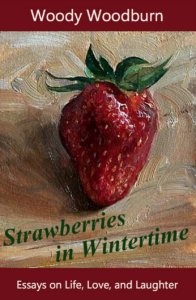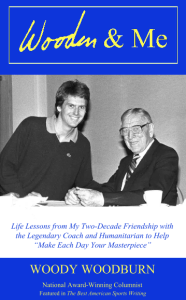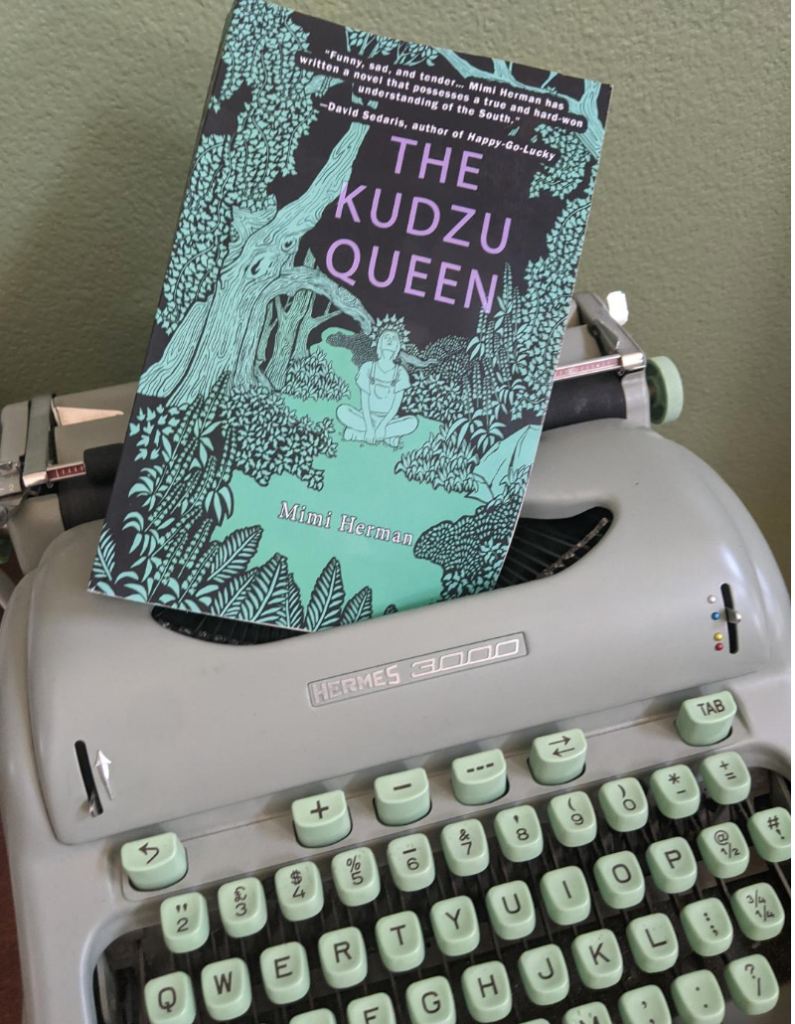“What really knocks me out,” Holden Caulfield says in “The Catcher in the Rye,” “is a book that, when you’re all done reading it, you wish the author that wrote it was a terrific friend of yours and you could call him up on the phone whenever you felt like it.”
Mimi Herman’s newly released debut novel, “The Kudzu Queen” (Regal House Publishing), KO’d me so completely I felt like calling her up on the phone even though we have never met.
Instead, I reached out through social media and she graciously responded from her home in North Carolina, where TKQ takes place, albeit in the early 1940s. Before I share some of our correspondence, let me share a little about her 320-page gem.
Lee Smith, a New York Times best-selling author, calls the narrator, 15-year-old Mattie Watson, “the most appealing young heroine since Scout” in “To Kill a Mockingbird.” Praise doesn’t come much taller than that.
Rather than being hyperbole, I think the favorable comparison to Scout actually falls short of doing Mattie full justice. In my eyes she even more so reminds me of Scout’s father, Atticus Finch, one of the most beloved characters in American literature. Mattie, like Atticus, has a golden heart and a backbone of steel and a conscience like the needle of a compass that always knows where the North Star is. I asked Herman if she agreed with my assessment.
“Mattie is mature for her age,” Herman replied, “so I can see her sounding like Atticus. In my mind, Mattie is what Scout (who is younger) might have grown up to be as an adolescent, and since both Scout and Mattie are in many ways shaped by their admirable parents, I can see the connection. Lately, I’ve been saying that I think Mattie’s parents are what Atticus might have been if he’d been divided into a mother and a father.”
Kudzu, by the way, is a plant that grows a “mile-a-minute” and has been called “the vine that ate the South.” I will not reveal the novel’s plot, other than to say it is a page-turner featuring a protagonist to admire; a handsome charlatan whose evilness outgrows kudzu; families, both tightly knit and torn apart; friendships and feuds; heart and humor; tears and fears; twists and turns.
Beyond the story itself, I fell in love with Herman’s writing. She is an acclaimed poet and this shines through in her long-form writing as she routinely makes a handful of words do the work of a hundred.
“I am fierce in my writing and revising about making sure each word, each sentence, each description, each line of dialogue is perfectly tuned, so it resonates,” Herman shared, noting her original manuscript was a whopping 680 pages.
The result of this poet-like approach is sentences that read like stanzas and paragraphs resembling sonnets. I would have finished reading TKQ in three nights instead of four had I not spent so much time rereading, even re-rereading, so many lovely passages in order to savor them fully.
Here is but one example chosen from dozens of passages I underlined, a single sentence that sums up a hundred previous pages. It is after a terrible fire, after a death too, and after a third tragedy as well: “Danny stayed with Mr. Cullowee, to tend whatever was left to tend on the farm that wasn’t a farm anymore, by the house that had stopped being a house after it ceased to be a home.”
Written by my new friend, Mimi, an author who has not stopped being a poet.
* * *
Essay copyrights Woody Woodburn
Woody writes a weekly column for The Ventura County Star and can be contacted at WoodyWriter@gmail.com. Follow him on Twitter and Instagram at @woodywoodburn. His SIGNED books are available at www.WoodyWoodburn.com.


Personalized Signed copies of WOODEN & ME: Life Lessons from My Two-Decade Friendship with the Legendary Coach and Humanitarian to Help “Make Each Day Your Masterpiece” and “Strawberries in Wintertime: Essays on Life, Love, and


